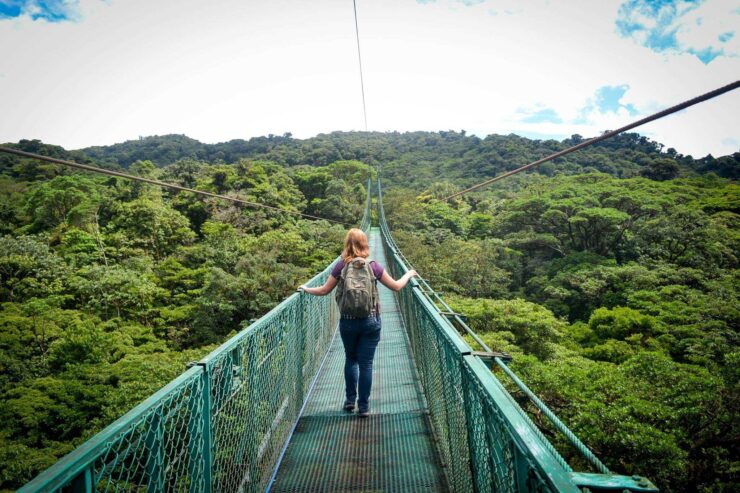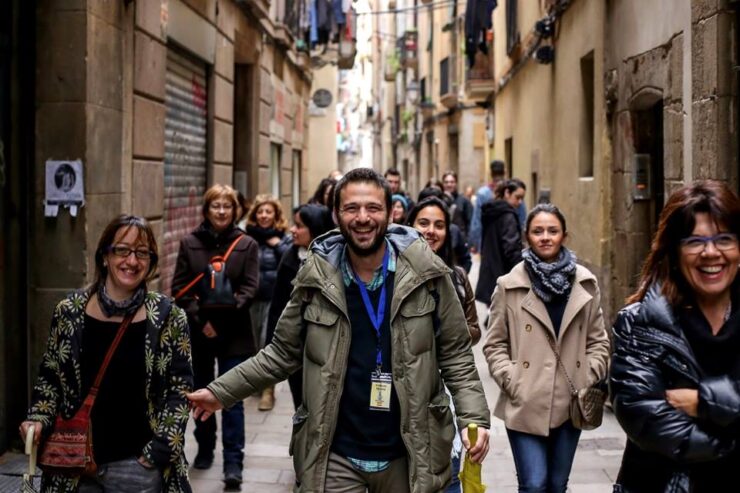When you travel to other places, you should learn to respect other people’s resources. You’re only visiting them, and you can’t leave them with burdens. Imagine when other people go to your house and leave trash all over. Being a responsible tourist is a sign of respect. If you want others to do the same when they visit your place, you should do the right thing. Here are some tips for being an environmentally responsible tourist.
1. Research the place you’re going to visit

You should know the place you intend to visit well. You can’t go there without knowing what resources are available in the area. For instance, there are limited resources when you visit some remote islands. You shouldn’t abuse what they offer you and instead help in the conservation efforts. You must also understand the dos and don’ts. You can ask questions upon arrival, but it’s better to know the facts before the trip.
2. Don’t leave trash everywhere
You should follow the rules regarding the disposal of trash. Whether you’re in public or private areas, you must know how to throw your trash properly. Some cities even have rules regarding proper segregation. You could get fined for not following them. If uncertain, keep the trash in your bag until you get back to your hotel.
Think about your recycling efforts at home. Of course, you spend time putting things in the right place. You even work with scrap metal recycling companies like langleyrecyclingkc.com to help dispose of your trash. But, you must do the same when you’re in other places. You can’t only be responsible for maintaining cleanliness at home. You should do the same wherever you go.
3. Respect the rules

Be aware of the rules before going to the destination. You should respect whatever rules are in place. It doesn’t matter whether you agree with these rules or not. You should also read the signs and follow them. For instance, if there are signs that say you can’t feed the animals, you shouldn’t do it. Take nothing home but pictures. Even if some resources are only available in the area, you can’t bring some home.
4. Pack lightly
Pack only the things that you need for the trip. You don’t need a lot of bags unless you intend to stay in a location for weeks. It helps reduce carbon emissions on planes. Besides, you will also leave fewer things when you didn’t bring much in the first place.
5. Use public transportation
If you can use public transportation, it’s even better. You can help avoid pollution. It might be less convenient and more crowded, but it’s worth doing. Besides, if you’re heading to big cities, you won’t find it hard to find suitable transportation options. You will also save money.
6. Bring your water bottle

You need water when you travel. You will walk for several miles a day, depending on the nature of your trip. When you’re thirsty, you might resort to buying bottled water. However, you will contribute more to pollution since you will most likely throw the bottle in the trash bin. When you have a water bottle, it’s easy to refill. You will also save money.
7. Stick to the hiking path
When you decide to go on a walk, make sure you stick to the path. You can’t go beyond the designated trail. Of course, you don’t want to get lost while walking. You also don’t want to disturb animals in their natural habitat. These trails are there for the right reasons. They are not random roads placed by the locals.
8. Choose environment-friendly partners
If you decide to get a travel agency, make sure it has environment-friendly practices. The same thing applies to other companies you choose to work with. You don’t want to support anyone that doesn’t believe in environmental preservation. Your money will go to the wrong companies.
9. Consider walking

Find a hotel close to the places where you intend to visit. You don’t have to keep using cars to visit these destinations. As soon as you’re out of the hotel, you can see the destinations. It also allows you to exercise and stay fit while traveling.
10. Explore the wonders of nature
While you visit some places for their landmarks and skyscrapers, don’t forget to visit the wonders of nature. You might find surprising places that will leave you breathless because of their beauty. You can also visit museums and art exhibits dedicated to environmental conservation. You can educate yourself more and also appreciate what nature has to offer. It’s your chance to know more and spread the word about the new information received.
11. Conserve water and energy
Make sure you don’t waste water and energy in your hotel. Sure, you paid for the services and amenities, but it doesn’t mean you can abuse them. You want to help conserve resources. Even if you’re not home, you should still feel concerned about available resources. You should also think about the locals, especially if you’re visiting places where these resources are scarce.
12. Consider seasonality
When ordering food at a restaurant, don’t look for fruits and vegetables only available at certain seasons. You also want to maximize whatever is available, or it goes to waste. You must also support local restaurants since they use local resources. You’re also helping farmers and suppliers with sustainable practices.
Being an environmentally-responsible traveler might seem exhausting and complicated, but it’s not. You need to be conscious of your actions. Think about the people around you and not only yourself. You should also think about the future generation. You want your children also to enjoy these trips the way you do. If not, the beauty of what you see right now won’t be available in the future. Finally, don’t be selfish and always consider others in what you do. You’re lucky to have the chance to travel. Don’t waste it by doing things that could harm the environment. The locals will also be thankful to you for being responsible.

